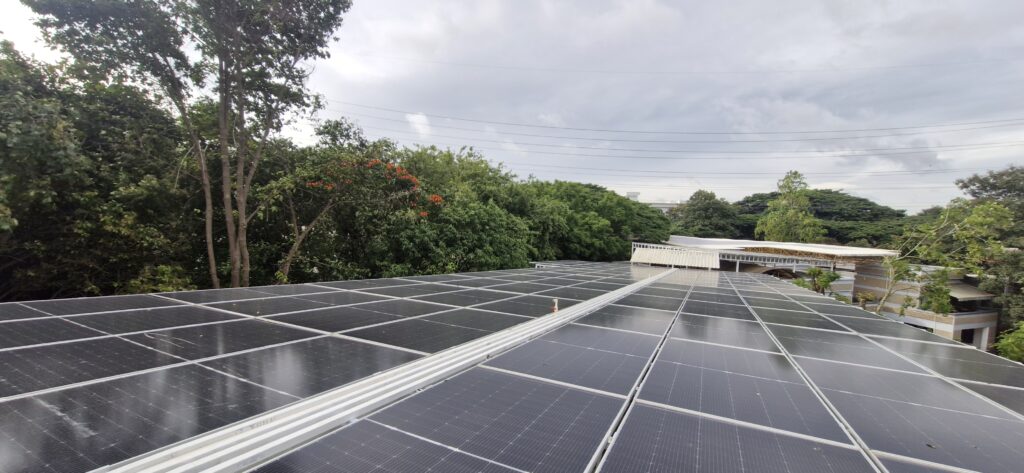niranjan.kaggere @timesofindia.com
response to the Centre’s PM Suya Ghar: Muft Bijli Yojana across much of Karnataka, Bengaluru and Mangaluru are emerging as key drivers in the state’s push for rooftop solar, buoyed by growing adoption of electric vehicles (EVS) in Bengaluru and wide spread air-conditioner (AC) use in Mangaluru. An analysis by Karnataka Renewable Energy Association (KREA) of all five Es coms shows a growing shift towards rooftop solar units. “People initially thought the state govt’s Gruha Jyothi scheme would cover their electricity bills,” said an in dependent energy consultant from Bengaluru. “But consumption has exceeded Gru ha Jyothi limits, and the spiralling cost of electricity has begun to burn a hole in their pockets, prompting them to opt for rooftop solar:”
The energy department confirmed an increase in ap plications. By Sept 8, the state received2.2 lakh applications for a total capacity of 859Mw. “Of over 2 lakh applications, 12,207 were for a capacity of 48.8Mw” a senior official said. “Of the 12,207 applications, 11,260 were eligible for subsidy worth Rs 88.1 crore.” Among Escoms, Bescom leads with 75,464 applications, followed by Hescom (50,595) and Mescom (47,729). “Bescom tops the list in absolute numbers, but if you compare these applications with customer base, Mescom leads,” said Raghunandan S, KREA president. “Mescom’s customer base is 27.8 lakh, but it received close to 48,000 applications. Bescom, with a consumer base of close to 150 lakh, received only 75,000 applications.” Raghunandan said in Mangaluru, ACs have be come a necessity due to sweltering heat and citizens are installing rooftop solar largely to meet AC costs. “In Bengaluru, its charging cost of EVs which is driving the demand,” he said. Transport department data shows 1.73 lakh EVs were registered in Karnataka in 2024-25, a slight increase from 1.7 lakh in 2023-24. Nearly 70% of these were registered in Bengaluru.
Experts say the shift is encouraging. Prof TV Ramachandra from Centre for Ecological Sciences, IISc, said: “Going forward, solar energy is the only solution to meet growing energy needs. Given the increase in annual mean temperatures, people on the coast have made the right choice.” Ramachandra pointed out that most of those who are constructing new homes are creating space for at least2 to 3kW rooftop units. People have realised the more you rely on the grid, the more fos sil fuel the state must burn, resulting in a higher carbon footprint,” he said.




